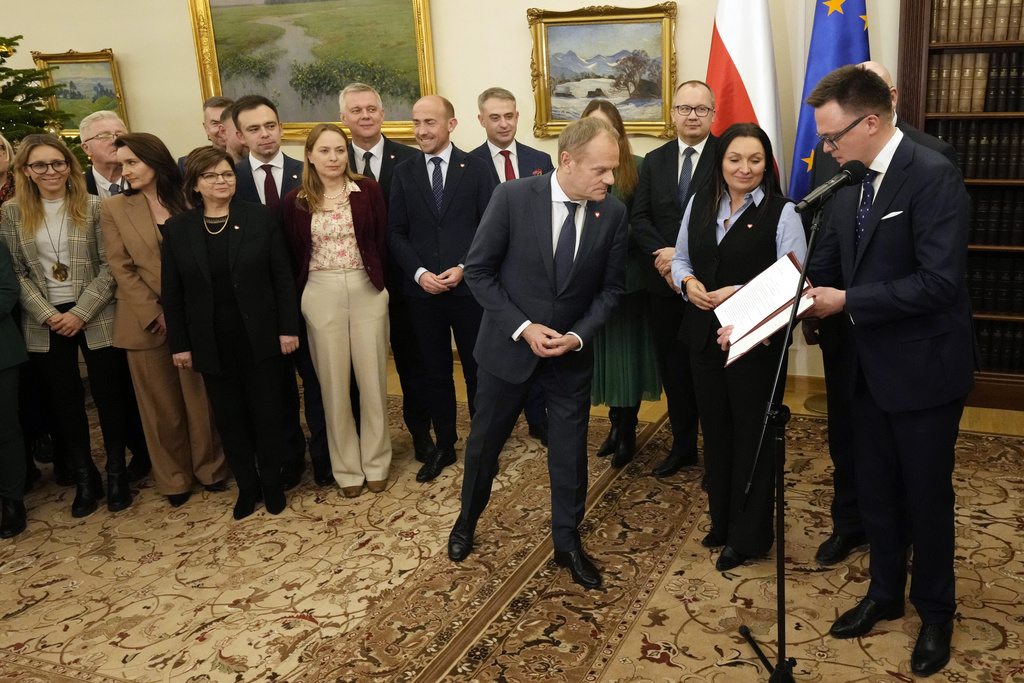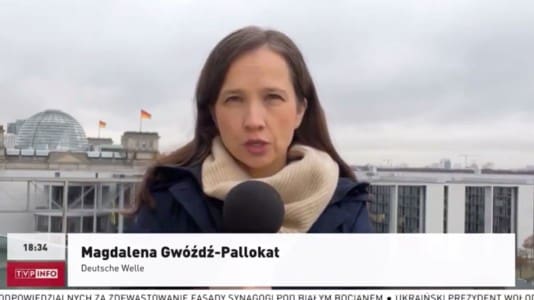The fight over the Tusk government’s takeover of public media is a crash test for the way Poland’s constitution, law and institutions are to operate in the coming months and years, according to Andrzej Anusz, who works for the Piłsudski Institute. He says that if the use of force in taking over public media proves successful, then similar action may be taken against top courts and the central bank. This will test the constitution’s limits. It will be a good time to be a lawyer in Polish politics, says Anusz.
However, just because the constitution will take center stage in Polish politics, does not mean that any change to it will come quickly. Poland is facing local, European and presidential elections over the next 18 months. Only once these elections are over, can there be any chance of any serious attempts to change the constitution.
Apart from the battle between Prime Minister Donald Tusk and President Andrzej Duda, the rivalry between speaker Hołownia, who has made no secret of wanting to run for president, and Tusk, who himself may want to run for head of state, could be critical to the stability of the ruling coalition.
The conservative Law and Justice (PiS) party, now in the opposition, is consolidating at the moment and using the battle over public media to maintain unity. Servicing the core vote and maintaining unity are the key priorities for its leader, Jarosław Kaczyński, who has always followed this strategy when forced into opposition.
According to Anusz, this time around, this strategy may not work, because PiS had enjoyed ruling on its own for eight years, leaving it in an especially bad position regarding building alliances and coalitions for the future. There is also the added issue of it having to rally around President Duda in opposition to Tusk, and Duda may wish to take it in a different direction than that planned by Kaczyński.
PiS faces competition from the Confederation party and the possibility that some PiS politicians will not wish to follow Kaczyński’s course of retreating to the PiS core in defense of the eight-year record of the PiS government alone.
Anusz believes the parties of the current ruling coalition are likely to do well in the local and European elections, but the crunch will come in the presidential election. If Hołownia is serious about trying to win, he has to get into the second round of voting. To do that, he has to get votes from the right, or else the second round will be between Tusk’s party and PiS.
This makes it more — rather than less likely — that Hołownia will want to move in a center-right rather than leftward direction in 2024, in anticipation of the contest to come in 2025.





